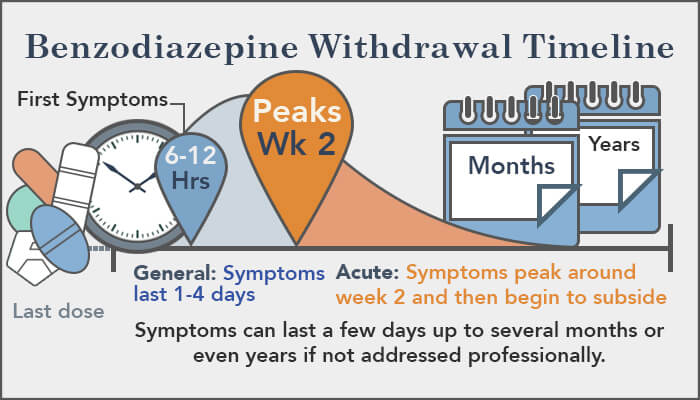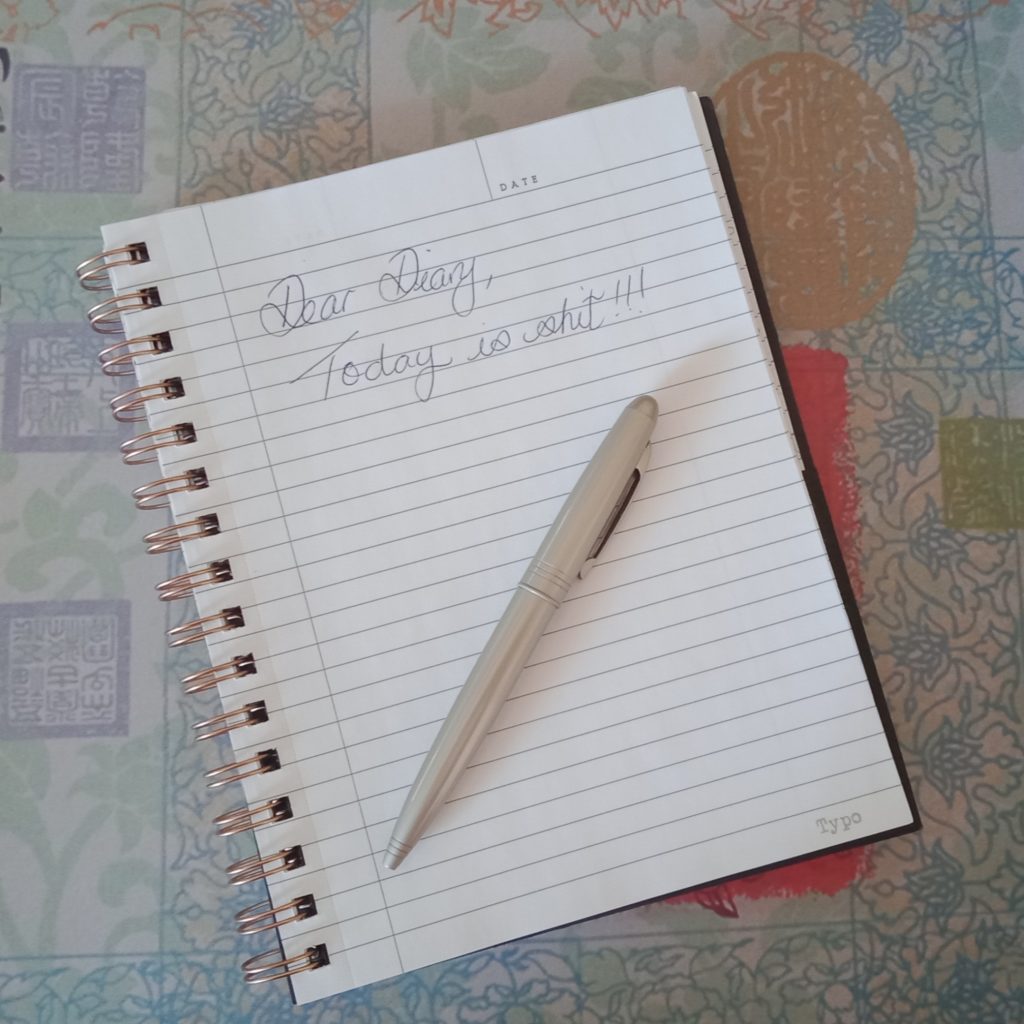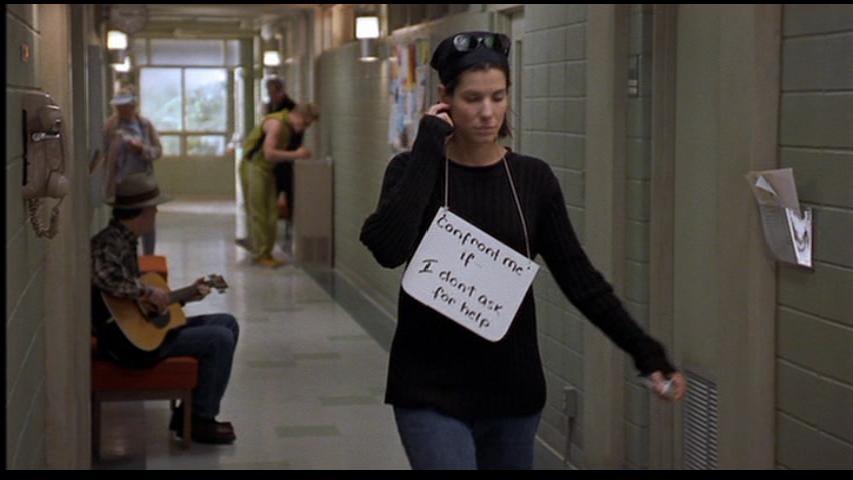September22

First of all, if you have read my benzo withdrawal horror story don’t let that scare you, just know that there is a chance that you will have no difficulties at all. After talking with the Bristol Tranquilizer Project and general observation in chat rooms and the like, it seems the journey can go one of three ways:
1. You will have very few problems withdrawing from benzodiazepines.
2. You will have a hard time or,
3. You will go through utter hell.
I was one of the unlucky ones in group three. There is no way of knowing which one of these groups that you will go into. It’s not necessarily linked to the dose, how long you took them or even if you abused them – everyone seems to react very differently. So if you’re thinking of withdrawing I’d hope for the best but plan for any outcome.
The Benzo Brain:
The brain becomes very sensitive and unhappy when you take away the benzodiazepine which has been calming it down. I like to think of the benzo brain as one of those snow globes. Each time you make a drop in dosage you give that snow globe a big old shake. This can throw up a snow shit storm of random symptoms that will settle down with time. You have to do your best not to shake that snow globe to excess. Any little thing can nudge it and cause havoc with your symptoms: getting stressed, not sleeping, bad diet, up dosing, alcohol. Do everything gently and mindfully of that settling snow. That goes for everything from exercising to new supplements. Start slowly and be extra kind and gentle with yourself.

Know what you’re getting into before you start:
Most people experience a degree of rebound anxiety and insomnia, this is what these drugs are most commonly prescribed for so it makes sense that if you then take them away that these symptoms will rear their ugly heads. I took the benzos for neuro excitability (caused by my chronic Lyme), and insomnia. When the benzo was taken away from me I had difficulties with my senses becoming over sensitive and insomnia. When taken for insomnia, get rebound insomnia. Take it for anxiety, get rebound anxiety. Obviously there is no hard and fast rule, just an observation from personal experience.
I think that if we were told by the doctor ‘take this tablet it will help symptom X for a while, but there is a chance when you stop taking them, that symptom X will be even worse than it is now’ most people would never even start taking them. This is called informed consent. Informed consent should always be granted before taking any medication or medical procedure. I was told that I was on a low dose and it was inferred that there’re pretty much harmless. Errr no and hell NO. I won’t list all the withdrawal symptoms here as anyone can Google the long list of symptoms that are part of benzo withdrawal. Basically anything goes and you just don’t know what you’re gonna get – it’s a real life Russian roulette.
Get help:
Never just stop your benzo if you have been on them long term which is considered longer than 3-4 weeks. Always check with the doctor who prescribed them first. Just be aware that although they gave them to you, they may not necessarily have the right knowledge of the drug to help to get you off them safely. The guidance is to come off them slowly which can clearly subjective and can be interpreted as anything. As a result I’ve had physicians interpret that to mean a matter of days (hello ambulance) when unfortunately, if you have been on them long term the taper should be done over a period of months. So just make sure the people that are offering to help you with withdrawal are experienced. You are well within your rights asking them outright if they have the appropriate experience. Shop around for doctors until you find one that’s the right fit. If they’ve never heard of Professor Heather Ashton just bolt for the door in my opinion.
Definitely get the RIGHT support. I would never suggest going to a clinic or a drug and alcohol service unless you have a problem with addiction and not physical dependence. If you don’t know the difference get educated before handing over your life to them to control. If you have no problems stopping and have no cravings or get any kind of high, but it’s the withdrawal symptoms that you struggle with, chances are that your dependant not addicted. Do not sign your rights over to these people unless you feel you need strict drug regimens, drug testing and counselling to help with cravings. It was without a doubt one of my biggest mistakes that I made during my withdrawal.
Warn your friends and family that you may potentially turn into a ‘psycho bitch crazy person’ and to just take it all on the chin for a while. One minute I’d be laughing hysterically, the next wanting to end it all. People going through withdrawal are hard to be around, especially when we don’t really know what we want from those trying to help. It makes it impossible for them. Some days I could not be alone but others I needed time to myself. Just make people in your life aware that your needs can change quickly and to respect that and that it will be temporary.
How to taper successfully:
Start with checking out the Ashton Manual. This was the method that I used initially until it was too fast for me. Remember it is simply a guideline and has its limitations. It’s a good way to introduce doctors if you’ve got a ‘these are totally harmless you can just stop them’ doctor like I came across. I found that the taper speed was way to fast at the end for me, but I think it’s a really good place to start. It also involves crossing over onto the easiest (arguably) benzo, Diazepam, to titrate down on as it has more sizes of tablets available. Go as slowly as you need to – remember you’re tying to take away just the right amount of benzo to not cause that snow globe to shake excessively – what we call a smooth taper. You may need to speed up, slow down and alter the rate continuously throughout your taper.

When you get to smaller doses I’d advise crossing over to liquid diazepam as it’s much easier to measure out which makes it more accurate and thereby safer. Some doctors will tell you this doesn’t exist (this happened to me) it does, they just don’t know about it as it is not commonly used in everyday practice – another red flag if you’re trying to assess someone’s ability to assist you in withdrawing from benzos.
Try not to up dose, take Z drugs (zolpiderm, zopiclone) or self medicate with alcohol to feel better. It just causes kindling (I’ll do another post explaining this phenomenon) and only helps temporarily. You’re basically confusing the hell out of your brain. Your taking away the benzo and your brain really doesn’t like it, causing a range of symptoms whilst it tries to find its feet again. You have to sit this time out and wait for that snow globe to settle. By adding in more of another substance that acts in a similar manor you’re just topping it up a little bit, this will feel temporarily better only to confuse your brain once more and make it more difficult next time you drop a dose. You’re essentially tap tap tapping that snow globe each time you do this and the brain really doesn’t like it.

Don’t make strict withdrawal schedules and stick to them rigidly. You simply do not know how your body will react to each drop so how on earth can you plan anything with absolute certainty? At the clinic I was forced to drop every two weeks. If you look at the pharmacokinetics of diazepam (please bear with whilst I geek out a little) you can’t plan schedules around two week time tables. The withdrawal symptoms have not even peaked at the two week mark. So your making a drop in your dose without even letting your body tell you how it’s doing first. If you’ve a sensitive brain like mine was, this can be too much for you and trust me, your brain will let you know. It makes more sense to make cuts every four weeks to begin with so that you can monitor how you respond. I found that some symptoms would start about four days after dropping the dose but the peak of my symptoms happened at the two week mark. Waiting two more weeks for those symptoms to start to ebb and to then go through the whole cycle again made sense to me. I didn’t personally micro dose as I couldn’t get my head around how you’d know if the rate was right for you or not, but I can see how it could work – taking away extremely tiny amounts each day so your only giving that snow globe a gentle tap and never a huge shake.

Journaling:
Keep a symptom journal as the days can merge into each other and it can really feel like your making no improvements at all. It’s important to see how your body is reacting after each cut to then be able to adjust your taper accordingly. It’s also hard to be objective about your progress as it can feel pretty slow, but gradually things start dropping into place and it’s really helpful to look back and see the changes. It’s also a good way to release a lot of emotions by jotting down how you’re feeling. A lovely mixture of drug induced anxiety, hopelessness, depression, frustration, hate at the medical and pharmaceutical profession and anger at yourself for even taking the evil dammed stuff, if you’re anything like me. Oh it’s a total riot and you need to find ways to cope with it best you can.

Diet:
Try to eat a nutrient dense diet and drink plenty of water to keep your sensitive brain happy. Avoid caffeine, alcohol and stimulants as they have a tendency to poke the snow globe and ramp up the anxiety. There are so many diets, it’s so individual, you really have to find what works for you as we are all so different. I had a plant based diet and avoided dairy, gluten, processed foods and sugars. I noticed a big difference in my anxiety and my sleep if I had sugar or dairy. I think it’s trial and error what works for you – jot it all down in your symptoms diary and patterns will emerge. The thought of meat or fish made me feel physically sick. I believe that it was my bodies way of telling me that I needed a more easily digestible diet to give my GI tract a break so it could focus on healing my brain. A simplistic and perhaps unscientific view, but none the less that’s how I felt about it.

Distraction is key:
Do what ever you can to distract yourself. At my worst all I could do was to take deep breaths to just get through that hour, not thinking any further ahead than that. On advice from the Bristol Tranquiliser project I found that the body scan (a progressive relaxation technique) is good to run through to try and relax your mind. Stress definitely made everything a thousand times worse – I may as well have launched the snow globe across the room. So do anything that your body allows you, within the limits of your symptoms, to relax. So, that may be simple but effective breathwork and meditation, yoga or trying to lose yourself in a hobby or a gentle walk. I found watercolour painting very therapeutic. I could lose myself for hours and I feel it just gave my brain a break from worrying about what was happening to me. Find something creative to lose yourself in for a bit. I also found the Wim Hof breathing method and ice baths (on days I felt up to it) very helpful. I found the ice baths really calmed down my nervous system and eased any anxiety. It sounds totally counter intuitive but trust me, it works.

One final tip:
Step away from the internet! Stop torturing yourself Googling and comparing to others – your journey is your own. I used to go on forums and compare my stage of withdrawal with others and get so jealous that some people seemed to be able to carry on as normal. I would also stress myself out about symptoms that I never even experienced. Although it can be initially helpful to realise that others are going through something similar, I think ultimately it stressed me out more than it helped me in the end. Remember that most of the really opinionated people in these forums are not medically qualified and what they are saying may not be true for everyone. Accept that the only control you have over what’s to come is how you react to it. If you live in absolute terror of what seems like the 2,934,592 random symptoms that could happen, chances are that some of them will appear. You have to learn to switch off and accept that this is your path for now. That things will get better in time and you CAN reclaim your life free of these evil drugs one day. Every day is a step closer to that.























































































